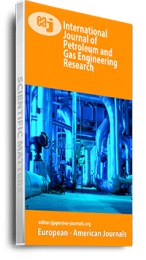Water-based drilling muds were designed with imported hydroxyethylcellulose, local bentonite, and cassava starch respectively and rheological properties under reservoir conditions were determined. Upon the concentrations of 0.5 %, 1.0 %, 1.5 %, and 2.0 % of each of viscosifiers, a linear relationship between shear stress and the shear rate at temperatures ranges of 80oF to 190oF were established. Although, upon 2.0 % concentration hydroxyethyl cellulose-based drilling fluid lost its fluidity. However, the rheological properties performance of bentonite and cassava starch-based drilling muds were considerably lower and it could be associated with the cassava starch cultivar and bentonite species used. Furthermore, this experimental study reveals the effect of temperature on imported hydroxyethylcellulose, local bentonite, and cassava starch water-based drilling muds and it was observed that as the temperature increased from 80 oF to 190 oF, the drilling muds experienced shear-thinning tendency. No doubt, the experimental study has revealed that imported hydroxyethylcellulose, local bentonite, and cassava starch are rheological enhancers in water-based drilling mud therefore could be recommended for drilling operations although will have little modification and beneficiation of local cassava starch and bentonite.
Keywords: Rheological behavior, Shear Stress, Shear strain, Slurry weight, shear-thinning

